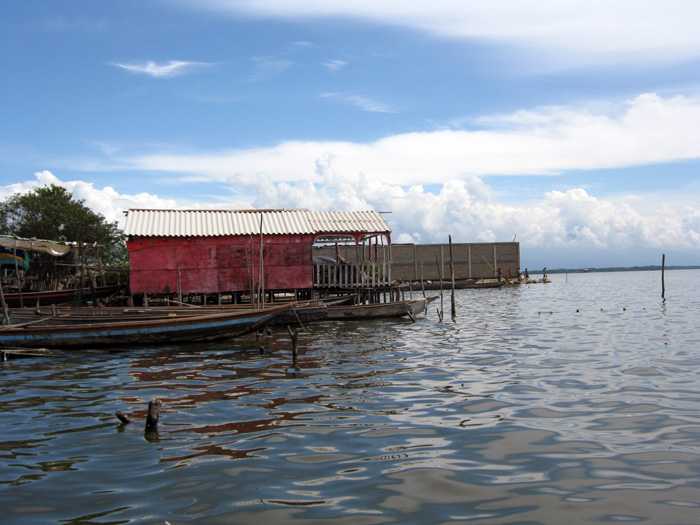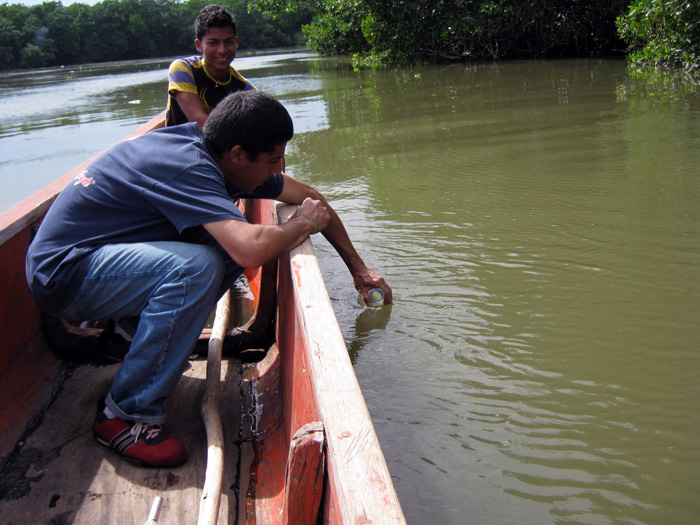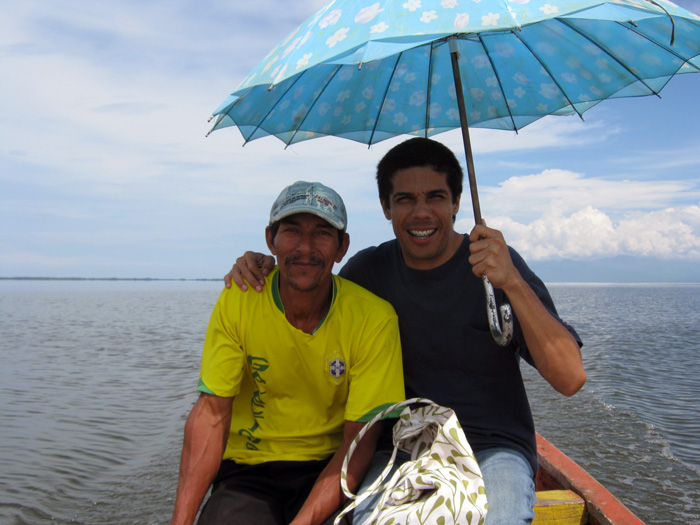According to the inhabitants of the Cienaga"s surroundings, in Magdalena, at the beginning of next year a reduction of the water level could occur originating mortality similar to that occurred 17 years ago.
Diego Villalba, a student of Universidad de Magdalena, has been studying for 17 years the origins of this event that caused big economic losses in the region. "It is possible that the agents responsible of this mortality were cyanobacteria, a special group of microalgae," asserted the expert.
Villalba, who leads the investigation, is supported by Gabriel Pinilla, associate professor of the biology Department of Universidad Nacional de Colombia, and counts on the advisory of the director of Universidad Nacional de Colombia in the Caribean, Ernesto Mancera.
This Ciénaga, declared a natural reserved by Unesco, receives the water of many rivers, bringing different chemical substances and organic elements that feed Cyanobacteria. "When they grow, they multiply and eliminate everything in their way. They produce a toxin 10 times more powerful than cobra"s poison," explained the student.
However, the reason why they appear in an invasive way is still unknown. In normal amounts, there bacteria are not harmful, since they produce oxygen by performing photosynthesis. In Brazil, several studies about these bacteria have been performed. "In Brazil, people have mathematical mechanism and formulas to determine when Cyanobacteria start their proliferation, and control and information measures which did not exist in Colombia," asserted Villalba to Agencia de Noticias UN
For this reason, in May, 2012, he will travel to Universidad Federal de Rio de Janeiro to continue his investigation, helped by Doctor Sandra Maria Feliciano, considered an expert in this topic.
Meanwhile, Diego keeps collecting samples in Ciénaga Grande to take to Brazil, where he can carry out his investigation and give an accurate answer to the questioning that eight year ago make him start the studies on the topic of Cyanobacteria. For now, he is as worried as fishermen, who have lived all their lives in this place and asserted that this event could occur again in February next year.
Villalba aims at knowing the secrets of these microorganisms to make more accurate predictions. "The Ciénaga is a virgin place, a few people have studied this place and there is still a lot to learn," concluded Villalba.
 Correo Electrónico
Correo Electrónico
 DNINFOA - SIA
DNINFOA - SIA
 Bibliotecas
Bibliotecas
 Convocatorias
Convocatorias
 Identidad UNAL
Identidad UNAL





